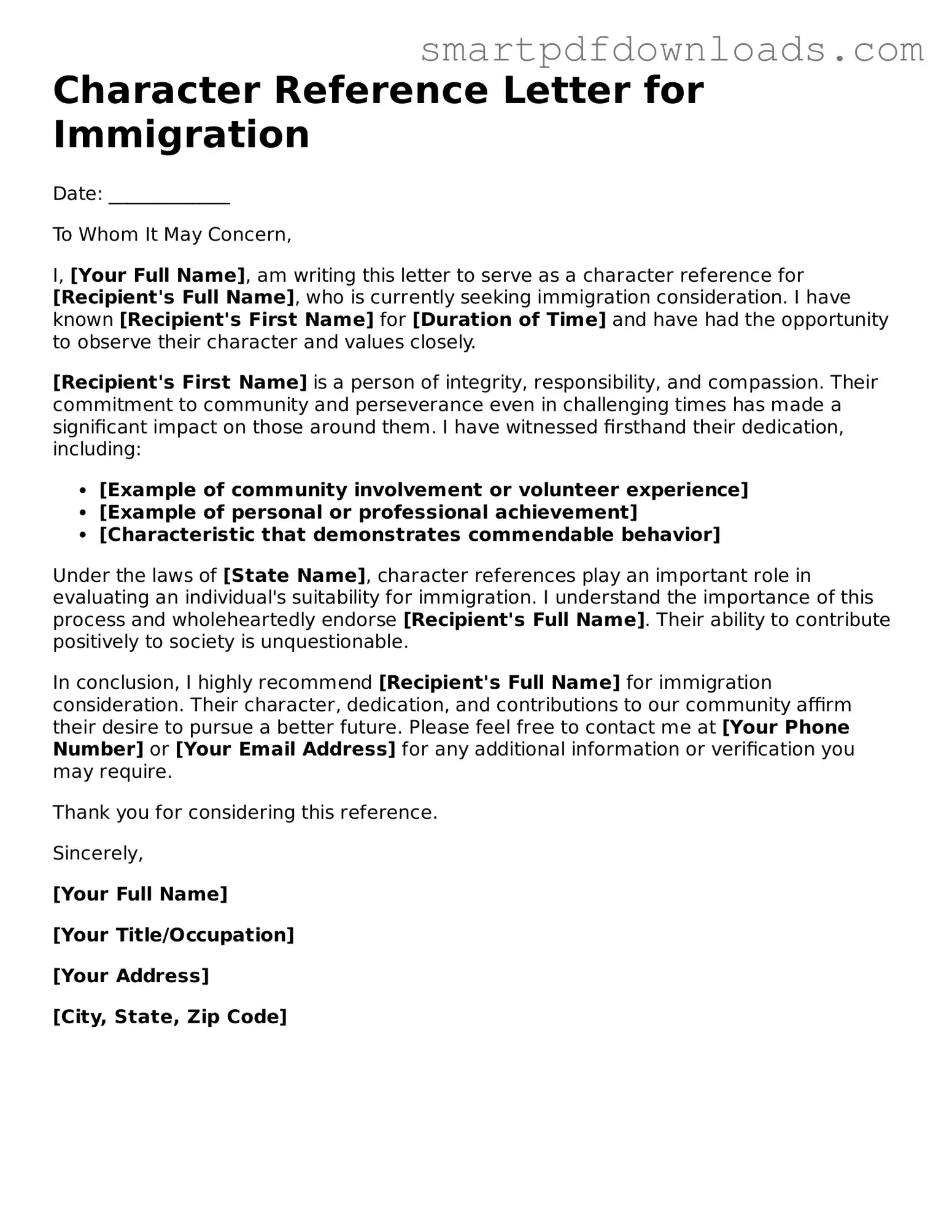Free Character Reference Letter for Immigration Form
The Character Reference Letter for Immigration is a document that provides insight into an individual's character and personal qualities, often supporting their application for immigration. This letter is typically written by someone who knows the applicant well, such as a friend, employer, or community leader. It serves as a testament to the applicant's good moral character and can significantly influence immigration decisions.
Edit Character Reference Letter for Immigration Online

Free Character Reference Letter for Immigration Form
Edit Character Reference Letter for Immigration Online

Edit Character Reference Letter for Immigration Online
or
⇓ PDF File
Finish the form and move on
Edit Character Reference Letter for Immigration online fast, without printing.